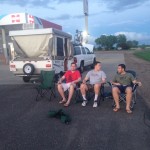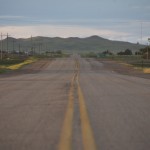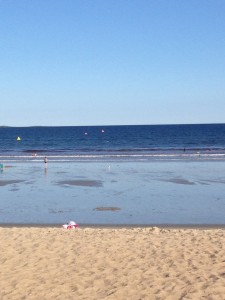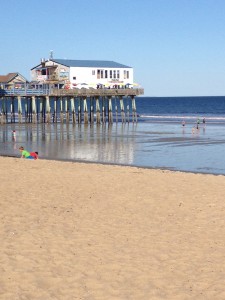Our 2004 Chevy Tahoe chugged down I-90 as we chased the setting sun across the vast green plains of South Dakota. We were on our way to Yellowstone National Park, 3 days into a road trip that we had been planning for almost 2 years. It was almost 9pm and we were closing in on our intended campsite at Badlands National Park, tired and hungry after a nearly 12 hours on the road. As we stared off into the horizon, my three best friends and I sat silently, individually enjoying the splendor of this beautiful land. Soon, however, we noticed that it was too quite.
“Why isn’t my phone charging?” questioned Clarke, keen on getting one last snapchat of the sun. A moment later, the car’s dashboard lights shut off completely. The engine noise died down and it seemed as if the car was shutting itself off. Sensing a problem, we pulled off the highway into the first gas station we could find. As we rolled into a small gas station right off the highway, the car simply died.
Unfortunately for us, it was a Sunday and the small, family-owned gas station was very closed. After half an hour of panic and confusion we came to the realization that we would be spending the night at the Cenex station in Reliance, South Dakota. Here we were, 1,700 miles from home “stranded” in what most would consider the middle of nowhere. With the situation completely out of our control, we put our phones on airplane mode, pulled out the lawn chairs and sat down to watch the sunset.
In that moment, nothing else in our lives mattered. Time became irrelevant as we simply disconnected from the outside world. While the breakdown seemed like a disaster at first, we quickly realized that is was the best thing that could have happened to us. We had no choice but to embrace our surroundings and make the most of our situation. It was relieving to put down our technology and enjoy nature in its purest form.
Just like the scientists in Ritchel’s “Outdoors and Out of Reach” article, we felt no sense of urgency, no anxiety, no commitment to anything besides the moment we were in. It was a sense of freedom and relaxation that I find hard to come by in my everyday life.
The next morning, we were greeted by a confused but friendly gas station owner. He installed a new battery and sent us up the road to a car dealership where our blown alternator was replaced. We were in the Badlands by lunchtime, only a few hours behind our intended schedule. However, that night in Reliance had quickly become our favorite experience of the trip.






